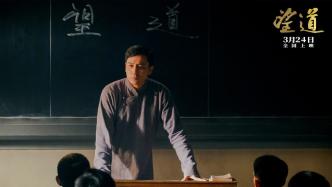
A book influenced a group of people, and a group of people changed the destiny of China. The movie "Wangdao" starts in 1920 and tells the life of Chen Wangdao, the translator of the first full Chinese translation of "Communist Manifesto", who has gone through turbulent changes, and has always lived up to the name "Wangdao", "pursuing the avenue of truth to save the country and the people". , At the same time, it also portrays a group of aspiring young people with firm ideals and beliefs a hundred years ago.
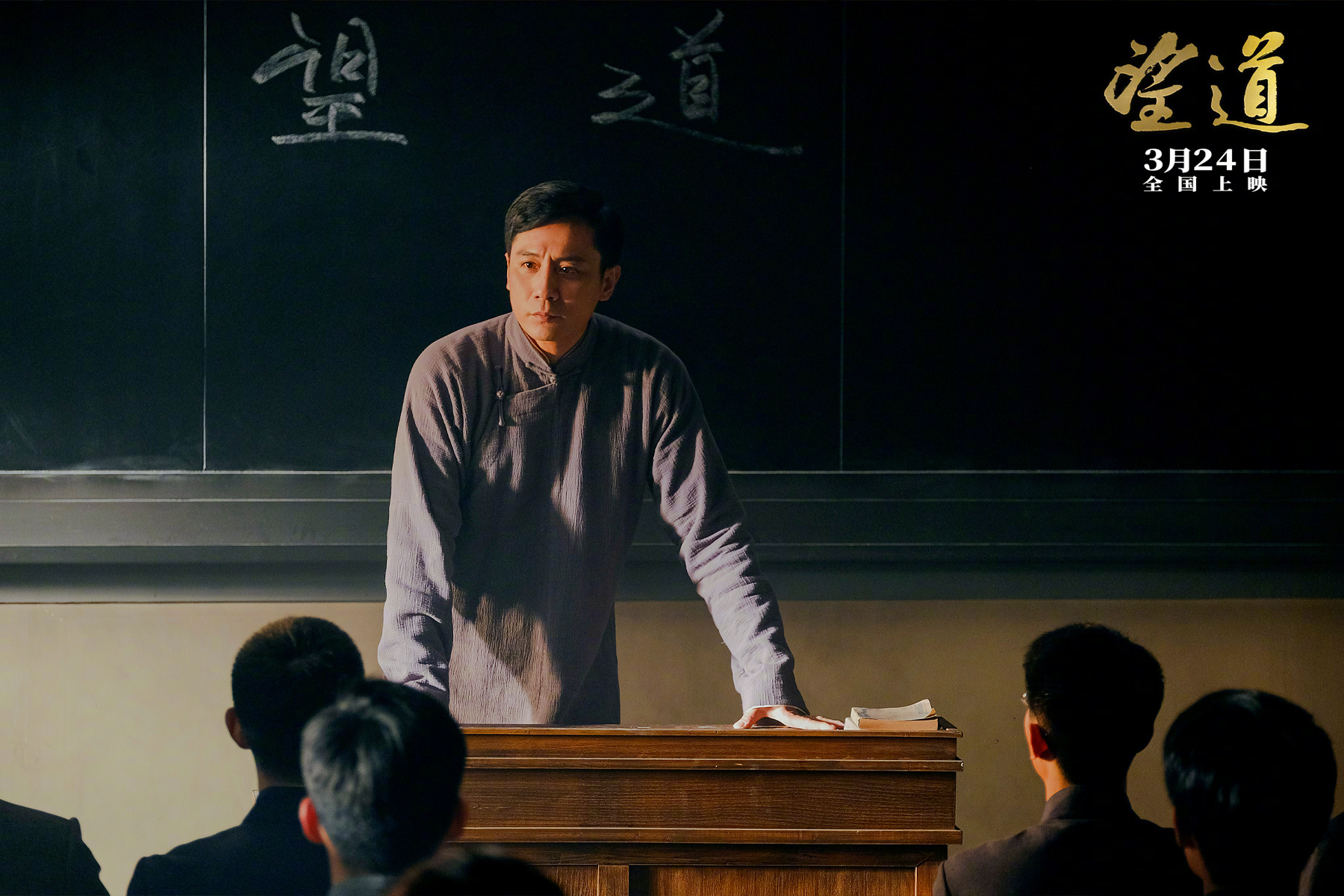
Stills of "Wangdao"
This is another movie produced in Shanghai that shows the big era from a unique small perspective.
Two years ago, "1921" unfolded "The First National Congress of the Communist Party of China was officially held", a plain statement in a history textbook, into a film that cuts across the cross-section of history, leading the audience back to the beginning of the founding of the party , the historical scene where the ideal young people in their prime are full of enthusiasm.
"Looking for the Way" is a "static" historical portrait of the translation of the "Communist Manifesto" by Mr. Chen Wangdao, the old president of Fudan University, and vividly interprets the dynamic group portrait of a group of "Wangdao" who worked together to practice their ideals and beliefs a hundred years ago. The historical story of "taste with ink in your hands, and the taste of faith will eventually be sweet" has also become fresh, full and full of vitality through frames of light and shadow in a way that keeps pace with the times.
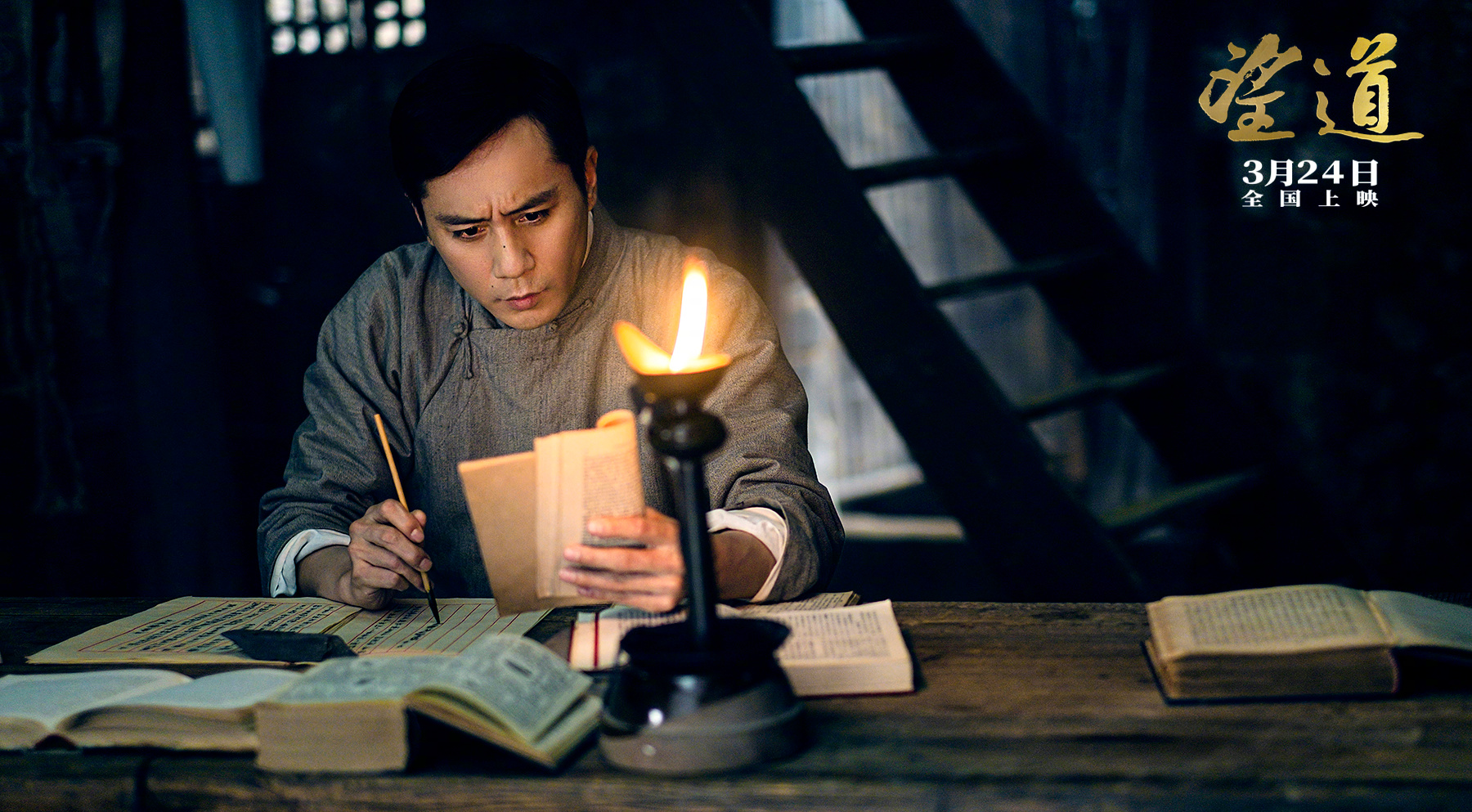
Stills of "Wangdao"
A hundred years ago, China was reduced to a semi-colonial and semi-feudal society. The country was torn apart, the country was poor and weak, and the people were in dire straits. Various reform attempts were made but failed repeatedly. Chen Wangdao's translation of the "Communist Manifesto" was the starting point to ignite the fire of hope for the suffering China where "the land is humiliated, the people are in distress, and the civilization is dusty". According to incomplete statistics, in the age of turmoil, various new trends of thought swarmed in. Hundreds of political parties and doctrines "I will come on stage after you sing", but "Chen Wangdao" firmly chose Marxism.
The words "Marxism" and "Communism" are familiar to us today, and the film "Wangdao" shows the audience how the aspiring young people at that time chose their beliefs and their future for China a hundred years ago. From engaging in the literary revolution at the beginning, to realizing the need for social reform later, from supporting students to run new newspapers and performing progressive dramas, to realizing the distinction and debate of "new and old" in a higher dimension, Marxism has become that a yardstick. The film restores the situation of China and the Chinese people at that time by means of scene restoration, situation setting, sound and picture rendering, and also gives a vivid interpretation of the practice of Marxism in China.
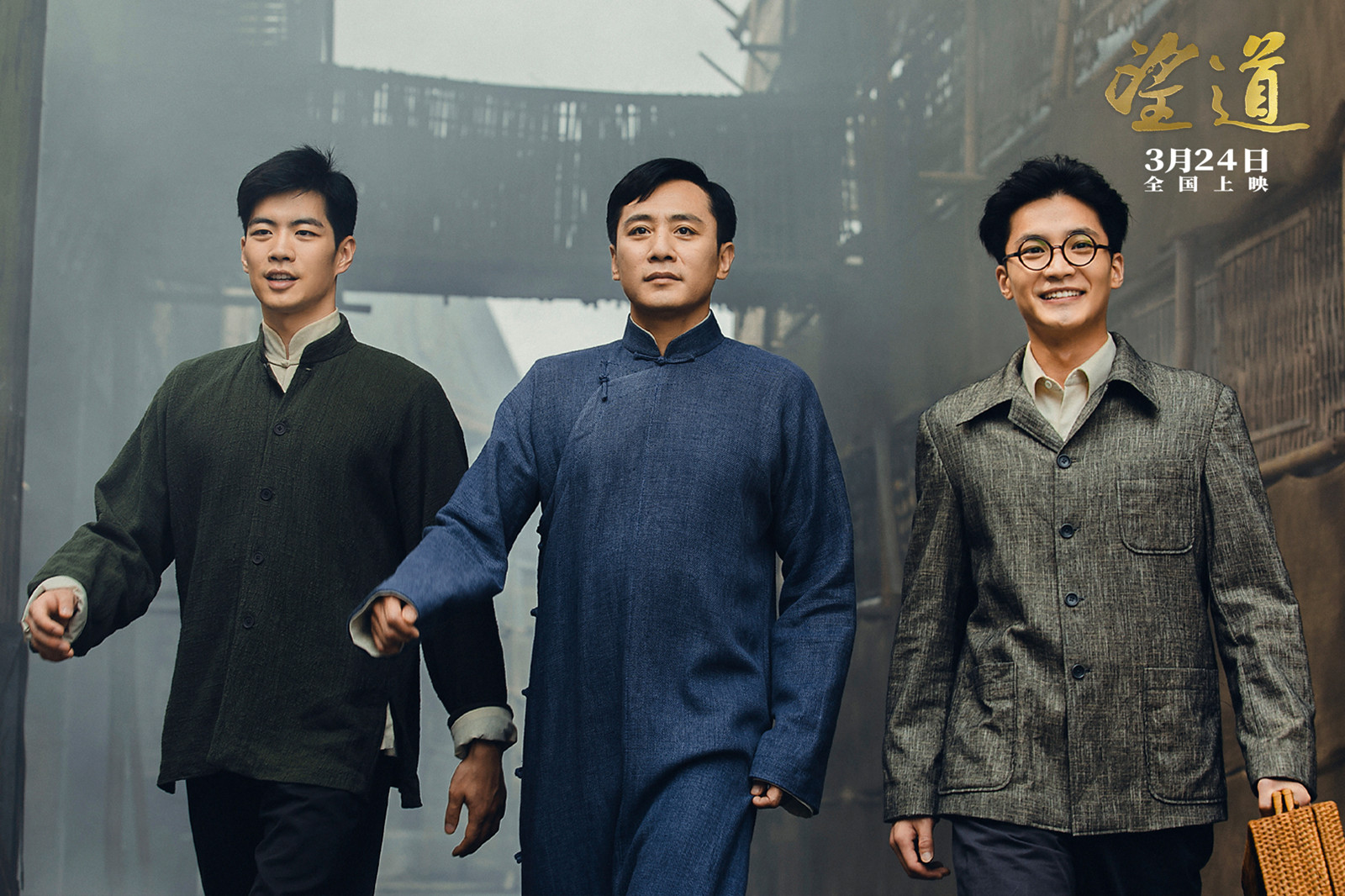
Stills of "Wangdao"
In the middle of the 19th century, the "Communist Manifesto" came out, and with the birth and development of Marxism, in the subsequent historical process, the working class and working people of all countries, inspired by advanced theories and spiritual inspiration, in order to seek their own liberation and development It has waged unremitting struggles with various reactionary forces. With the ups and downs of the revolutionary movement and the surge of the labor movement, the entire pattern of world history has also changed accordingly. Relying on his deep understanding of Marxism and the current Chinese society, as well as his knowledge of English, Japanese and other foreign languages, his own language, and his profound knowledge of traditional culture, Chen Wangdao translated the "Communist Manifesto". The spread of Marxism in China and the birth of the Communist Party of China.
In 1936, when Mao Zedong talked with American journalist Edgar Snow, he said: "There are three books that are particularly deeply engraved in my heart, which established my belief in Marxism. Since then, my faith in Marxism has never been shaken.” The first of these three books is the “Communist Manifesto” translated by Chen Wangdao.
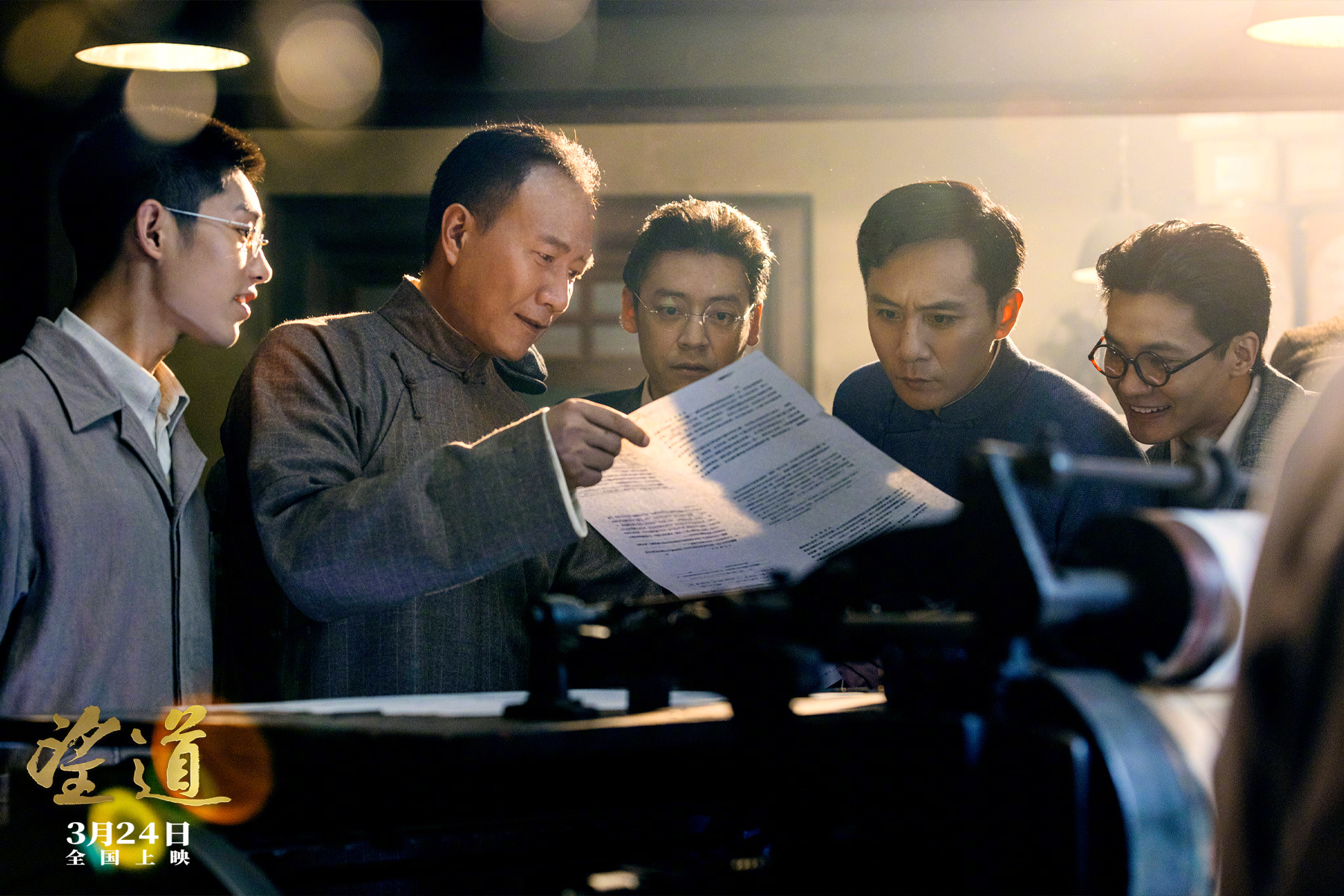
Stills of "Wangdao"
The translation of the "Communist Manifesto" was not only the most glorious stroke in Chen Wangdao's life, but also an important event in the history of the Communist Party of China and even the entire modern history of China. And the translation itself is not the thrilling action in commercial movies that audiences are familiar with. With a large number of details and a series of vivid and detailed arrangements, the film expands Wen Zouzou's translation work to make it more interesting to watch. In order to find translators who are proficient in foreign languages and good at vernacular, Chen Duxiu and the editorial department of "Weekly Review" The "recruitment scene" was staged; the familiar first sentence of the "Communist Manifesto" "a specter, the specter of communism, wanders in Europe", Chen Wangdao took into account the role of his combat message, and translated it into "there is a The monster is wandering in Europe, and this monster is communism”; Chen Wangdao, in order to find the accurate Chinese expression of Bourgeois and Proletarians in English, piled up the floor of the house with crumpled waste paper, and he finally had a flash of inspiration while practicing martial arts and overthrew the Communist Party of China. The Japanese translation of "Gentleman, Commoner" and the ordinary "Rich, Poor" puts forward the "haves and have-nots" that are most in line with the connotation of communism; The 1,000 copies of the first Chinese translation; and the famous story of mistakenly eating ink as sugar water and "the taste of truth is very sweet"... The film uses its own advantages to let the audience feel Chen Wangdao's linguistic skills and spirit more clearly. At the same time, it also makes more concrete footnotes for the abstract "declaration" itself.
At the same time, the film does not stop at the first full Chinese translation of the "Communist Manifesto", but follows the wave of modern Chinese revolution and extends to Chen Wangdao's life experience: from taking over "New Youth" with high ambitions, organizing the labor movement with high morale, The companions who had fought side by side left one after another, broke down and cried after the April 12th incident, went to the streets to raise funds for the reconstruction of the "Fudan News Center" in Beibei, Chongqing, and was seriously ill in bed due to overwork and worry... For the first time in a film and television work Such a persistent, straightforward, and "human" Chen Wangdao appeared.
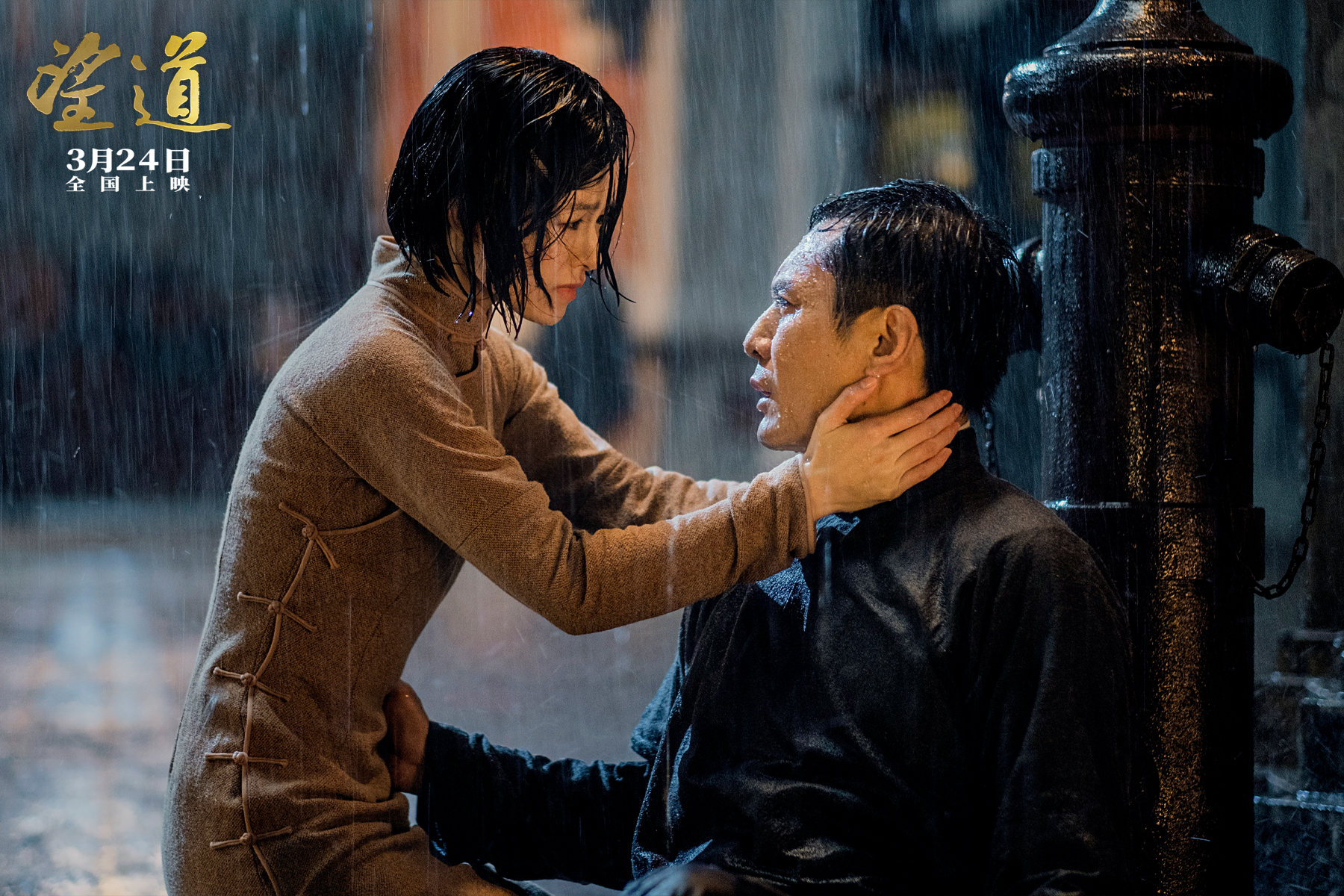
Stills of "Wangdao"
Once the fire of faith is ignited, "Although there are tens of thousands of people, I will go"-so there are touching plots such as Yang Along's generous sacrifice in the film, and the left arm of the students in the news hall. The title of the movie "Wangdao" refers not only to Chen Wangdao, but also to a group of "Wangdaoists" at the same time. Chen Duxiu, Shi Cuntong, Dai Jitao, Li Hanjun, Xuan Zhonghua, Cai Muhui, Lin Yin, Yang Along, etc. appeared successively in the film. Some of them passed on to future generations, and some accompanied Chen Wangdao all his life. The passion and hardship of the revolution in the turbulent era and the capricious fate made the audience sigh with emotion and sigh.
In recent years, the creation of main theme movies has become the mainstream of the market, and the excavation and inheritance of red genes in various places have also shown their strengths. As a city full of red genes, Shanghai has a profound red cultural background. After the Chinese translation of the "Communist Manifesto" was published in Shanghai and disseminated in China, the first National Congress of the Communist Party of China, the first socialist youth organization, the earliest national labor movement command organization led by the party, and the first party training women The school for cadres and the first party constitution of the Communist Party of China were born in Shanghai. Today, there are more than 650 revolutionary historical sites and relics in the city, and 400 red memorial sites cover the traces of "sparks" burning in various fields and industries led by the Communist Party of China in Shanghai.
The red movies in Shanghai have ranged from classics such as "Southern Expedition to the Northern War", "Crossing the River Reconnaissance", "Railway Guerrilla", "Lin Zexu", "Red Detachment of Women", "Li Shuangshuang" and other classics in my memory, to "The Climber", "1921" and "Wang Dao" in recent years. " and other works have come out one after another. While "produced in Shanghai" keeps pace with the times and grasps the spirit of the times, it is also constantly looking for resonance and empathy with the current audience in story discovery and audio-visual presentation.
"Wang Dao" is a youth dialogue that has been separated by a hundred years. The film was launched at Fudan University. During the filming process, hundreds of extras were recruited from more than a dozen colleges and universities. They have an in-depth knowledge of party history. 100 years ago, the group of young people in their prime of life searched for a way out for the country. After traveling through thousands of mountains and rivers, still with a pure heart, standing on the great historical node of the second century, facing the major changes unseen in a century, facing the intricate international environment, and facing the changes brought about by the changes in the main contradictions of society. With new features and new requirements, young people today also have a long way to go. We still need such movies. Looking back at the original intention, looking up to the sages, and having faith in our hearts, we can go far.
